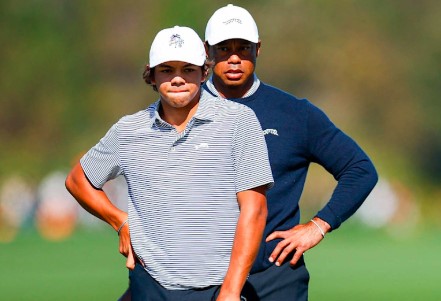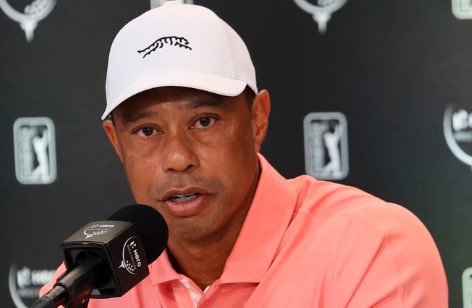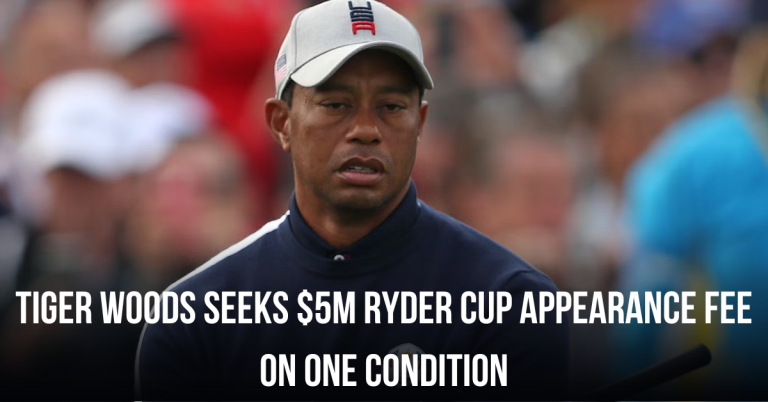Transgender Golfer Challenges Ban from Women’s LPGA Tour: A Closer Look

In a groundbreaking moment for sports and equality, a transgender golfer hits out at ban from women’s LPGA tour, sparking intense debates worldwide. This controversial decision has put the spotlight on the intersection of gender identity and fairness in professional sports. With global sports enthusiasts and countries like Nigeria closely following this story, it’s vital to unpack the arguments, implications, and broader societal context.
In this post, we’ll dive deep into the issue, breaking it down into digestible sections. Whether you’re a passionate golf fan or someone curious about the evolving dynamics of sports, this post is tailored for you.
What Happened? Understanding the Ban
Why Was the Ban Enforced?
The LPGA, like many professional sports organizations, has specific eligibility requirements for its players. Historically, the tour has required competitors to meet certain gender-based criteria. In this case, the transgender golfer in question was deemed ineligible under these guidelines.
While LPGA officials cite maintaining a level playing field as their primary concern, critics argue that such policies marginalize transgender athletes, preventing them from participating in the sport they love.
The Athlete’s Perspective
The golfer in question, who has chosen to remain partially anonymous for privacy reasons, expressed frustration and disappointment. “Golf has always been a sport of inclusion and sportsmanship. This ban feels like a step backward,” the player said during a press conference.
The Debate: Fairness vs. Inclusion
What Does Fairness Mean in Golf?
At its core, fairness in golf revolves around skill, precision, and mental fortitude. Critics of the ban argue that these qualities are not inherently tied to gender. However, others point to potential physiological differences that could provide advantages, such as strength or endurance.
| Perspective | Argument |
|---|---|
| Pro-Ban Advocates | Ensuring a level playing field by adhering to traditional gender categories. |
| Opposition to the Ban | Promoting inclusivity and recognizing that golf is more skill-based than physical. |
Inclusion in Modern Sports
Transgender rights in sports have become a hot topic globally. While some organizations like the International Olympic Committee have introduced guidelines allowing transgender athletes to compete, others remain hesitant.
The key question remains: Can sports truly balance fairness with inclusivity?
Global Reactions to the Ban
USA: Divided Opinions
In the United States, reactions are polarized. While some applaud the LPGA for prioritizing fairness, others criticize it for excluding transgender athletes. Prominent activists and former athletes have called for updated policies that consider the nuances of gender identity in sports.
Nigeria’s Growing Voice in Sports Advocacy
In Nigeria, where sports like soccer dominate, this story has sparked curiosity and debate. With golf gaining traction among the elite, many Nigerians have taken to social media to share their views. While some support the ban, others call for more progressive policies, emphasizing the need for inclusion in all sports.
The Science: Do Transgender Athletes Have an Advantage?
Research into the advantages of transgender athletes is still in its infancy. Some studies suggest that transgender women may retain certain physical advantages post-transition, while others highlight the impact of hormone replacement therapy in leveling the playing field.
Hormone Therapy and Its Role
Hormone replacement therapy (HRT) often reduces testosterone levels and impacts muscle mass, strength, and endurance. Proponents against the ban argue that these changes mitigate any perceived advantages.
The Bigger Picture: What This Means for Golf
Golf has long been considered a sport of tradition and etiquette. However, as societal values evolve, so too must the sport. The transgender golfer hitting out at the ban from the women’s LPGA tour highlights the need for sports organizations to adapt to modern challenges.
Possible Solutions
- Revised Eligibility Policies: Updating policies to consider both fairness and inclusion.
- Separate Divisions: Introducing new divisions for transgender athletes, though this may risk further marginalization.
- Case-by-Case Basis: Evaluating each athlete individually based on skill, fitness, and other factors.
A Call for Dialogue and Change
The story of the transgender golfer challenging the LPGA ban is more than just a sports headline; it’s a reflection of broader societal shifts. Sports fans, policymakers, and athletes must come together to find solutions that respect both fairness and inclusion.
Handy Sports will continue to follow this evolving story, bringing you accurate updates and expert analysis. Share your thoughts in the comments: Should transgender golfers be allowed to compete in women’s tours?
Author: Lawrence Cummerata
Website: Handy Sports






